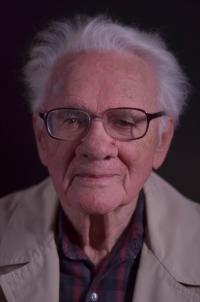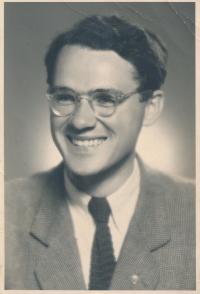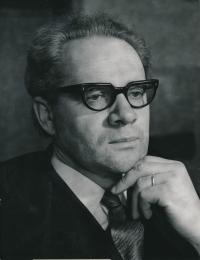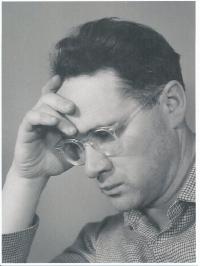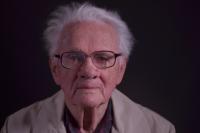You need to run under the barrier...

Download image
Zdeněk Šesták was born on December 10, 1925 in Cítoliby near Louny. His father worked as an official for the Czechoslovak State Railways, and his mother was a teacher. Apart from their professions, both his parents were amateur musicians. Zdeněk’s father played violoncello, and his mother sang in a church choir. Zdeněk has been playing the piano since his early childhood, and during his study at the grammar school in Slaný he also played the organ in the local church. In 1945 he was admitted to the Prague Conservatory to the class of E. Hlobil. At the same time he studied musicology at the Faculty of Arts of Charles University in Prague, where he also attended lectures of Jan Patočka. He completed his studies at the Prague Conservatory in 1950, but he was not allowed to finish his university studies because he was expelled from the university in 1949 for political reasons. After his army service he became employed in the Central Folk Culture House, where he worked in 1952-1954. Subsequently he went to the Army Art Ensemble, where he worked as a lecturer for directors of the individual ensembles until 1957. He works free lance as a music composer, with the exception of the period in 1968-1969 when he became the head dramaturgist of the symphonic, chamber and vocal music in the Czechoslovak Radio, and in 1991-1992, when he lectured regional music studies at the musicology department of the Faculty of Arts of Charles University. He focuses on musicology research, and throughout his entire life he has been interested in the Cítoliby school of composition from the 18th century which he discovered. In 2008 he was awarded the Czech Ministry of Culture Prize for his extraordinary art and his musicology activity in the area of Czech music, culture and arts.
